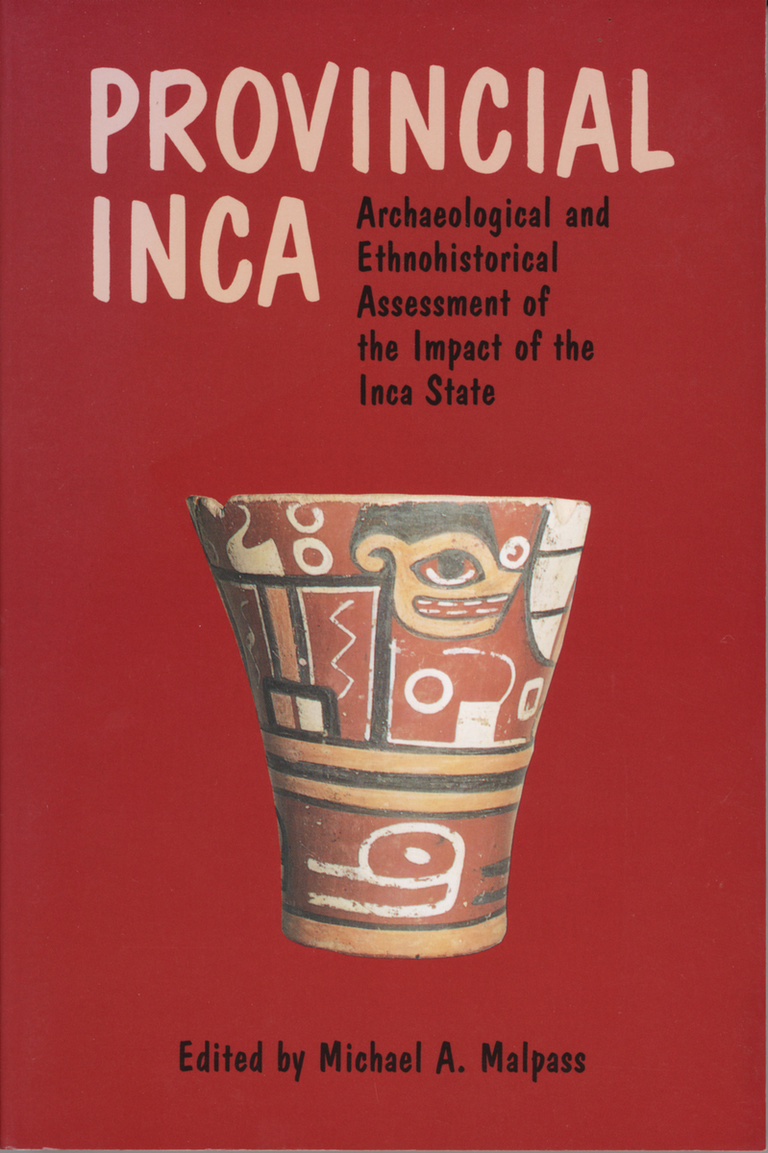Who was in charge of the widespread provinces of the great Inka Empire of the fifteenth and sixteenth centuries: Inka from the imperial heartland or local leaders who took on the trappings of their conquerors, either by coercion or acceptance? By focusing on provinces far from the capital of Cuzco, the essays in this multidisciplinary volume provide up-to-date information on the strategies of domination asserted by the Inka across the provinces far from their capital and the equally broad range of responses adopted by their conquered peoples.
Contributors to this cutting-edge volume incorporate the interaction of archaeological and ethnohistorical research with archaeobotany, biometrics, architecture, and mining engineering, among other fields. The geographical scope of the chapters—which cover the Inka provinces in Bolivia, southeast Argentina, in southern Chile, along the central and north coast of Peru, and in Ecuador—build upon the many different ways in which conqueror and conquered interacted. Competing factors such as the kinds of resources available in the provinces, the degree of cooperation or resistance manifested by local leaders, the existing levels of political organization convenient to the imperial administration, and how recently a region had been conquered provide a wealth of information on regions previously understudied. Using detailed contextual analyses of Inka and elite residences and settlements in the distant provinces, the essayists evaluate the impact of the empire on the leadership strategies of conquered populations, whether they were Inka by privilege, local leaders acculturated to Inka norms, or foreign mid-level administrators from trusted ethnicities.
By exploring the critical interface between local elites and their Inka overlords, Distant Provinces in the Inka Empire builds upon Malpass’s 1993 Provincial Inca: Archaeological and Ethnohistorical Assessment of the Impact of the Inca State to support the conclusions that Inka strategies of control were tailored to the particular situations faced in different regions. By contributing to our understanding of what it means to be marginal in the Inka Empire, this book details how the Inka attended to their political and economic goals in their interactions with their conquered peoples and how their subjects responded, producing a richly textured view of the reality that was the Inka Empire.
“Malpass and Anconini have assembled a worthy successor to Provincial Inca. They have spread their net widely to look at aspects of empire outside the highland core, with contributions dealing with the far south and southeast, with the central coast, and, to a lesser extent, with the north (Farfán, Palmitopamba, Ecuador). Using both archaeological methodologies and ethnohistory, they show how the Inka presence outside the Cuzco region varied by the nature of the Inka interest in the area for labor, raw materials, or defense and the varying responses of people to an Inka presence. This book will prove a boon to those who are teaching South American history and archaeology courses and will be of considerable general interest to history buffs as well.”—Karen Olsen Bruhns, San Francisco State University
“This book is a great success. It presents studies of Inka occupations in various distant provinces of the empire and as such is a companion to the earlier Provincial Inca, edited by Michael Malpass. It makes the case that Inka occupations varied widely, due to a number of factors, and the individual chapters bear this out quite nicely. I find the book to be a significant contribution, especially as it pulls together studies from widely dispersed regions. The concluding chapter, by the volume editors, is especially useful and makes the significance of the entire work quite clear.”—Katharina Schreiber, Department of Anthropology, University of California at Santa Barbara
“Malpass and Alconini have assembled a collection of studies reflecting the diversity of theoretical and methodological approaches to Inka provincial strategies. The essays in this volume reflect the dynamic nature of the Inka imperial enterprise, bringing to the fore the role of local interests in the negotiation of administrative practices. The wide range of case studies provides a good reference that adds to a growing international literature.”—R. Alan Covey, Southern Methodist University
ix Preface and Acknowledgments
One
1 Provincial Inka Studies in the Twenty-first Century
Michael A. Malpass and Sonia Alconini
Two
14 Archaeobotany of Cerro del Inga, Chile, at the
Southern Inka Frontier
Jack Rossen, María Teresa Planella, and Rubén Stehberg
Three
44 An Archaeological Perspective on the Inka Provincial
Administration of the South-Central Andes
Calógero M. Santoro, Verónica I. Williams,
Daniela Valenzuela, Álvaro Romero, and Vivien G. Standen
Four
75 Yampara Households and Communal Evolution in the
Southeastern Inka Peripheries
Sonia Alconini
Five
108 Living under the Imperial Thumb in the Northern
Calchaquí Valley, Argentina
Félix A. Acuto
Six
151 Forms of Imperial Control and the Negotiation of
Local Autonomy in the Cinti Valley of Bolivia
Claudia Rivera Casanovas
Seven
173 The Organization of Inka Silver Production in Porco, Bolivia
Mary Van Buren and Ana María Presta
Contents
Eight
193 A Bioarchaeological Approach to the Search for Mitmaqkuna
Susan J. Haun and Guillermo A. Cock Carrasco
Nine
221 The Socioeconomic and Ideological Transformation
of Farfán under Inka Rule
Carol Mackey
Ten
260 Inkas and Yumbos at Palmitopamba in Northwestern Ecuador
Ronald D. Lippi and Alejandra M. Gudino
Eleven
279 Toward a Better Understanding of Inka Provincialism
Sonia Alconini and Michael A. Malpass
301 Contributors
307 Bibliography
351 Index


